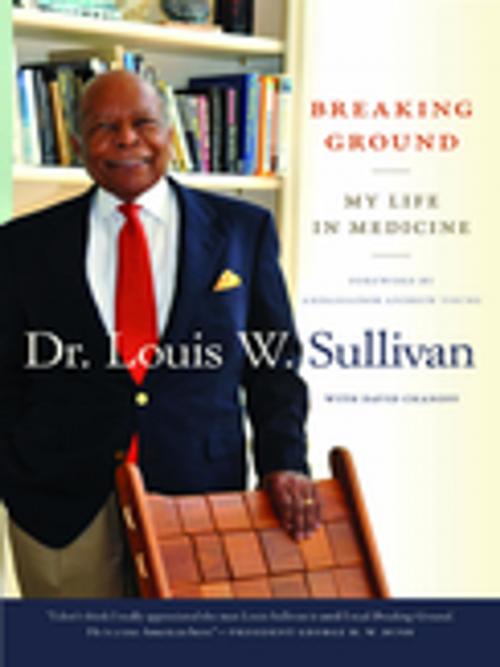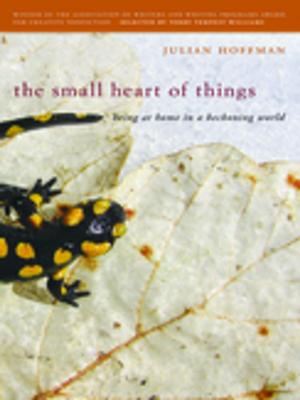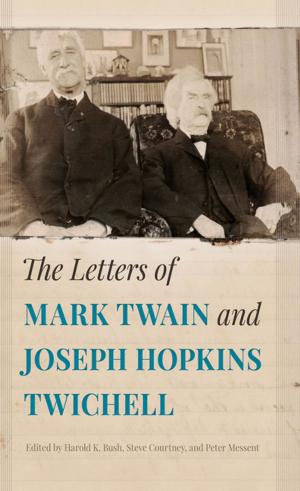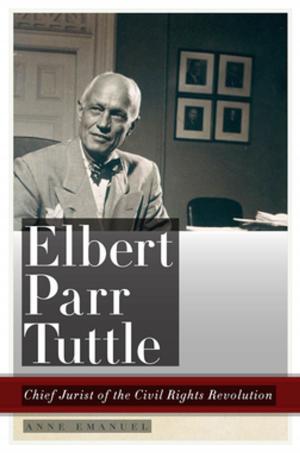Breaking Ground
My Life in Medicine
Biography & Memoir, Reference, Nonfiction, History, Americas, United States, 20th Century, Social & Cultural Studies, Social Science| Author: | Louis W. Sullivan | ISBN: | 9780820346939 |
| Publisher: | University of Georgia Press | Publication: | February 1, 2014 |
| Imprint: | University of Georgia Press | Language: | English |
| Author: | Louis W. Sullivan |
| ISBN: | 9780820346939 |
| Publisher: | University of Georgia Press |
| Publication: | February 1, 2014 |
| Imprint: | University of Georgia Press |
| Language: | English |
While Louis W. Sullivan was a student at Morehouse College, Morehouse president Benjamin Mays said something to the student body that stuck with him for the rest of his life. “The tragedy of life is not failing to reach our goals,” Mays said. “It is not having goals to reach.”
In Breaking Ground, Sullivan recounts his extraordinary life beginning with his childhood in Jim Crow south Georgia and continuing through his trailblazing endeavors training to become a physician in an almost entirely white environment in the Northeast, founding and then leading the Morehouse School of Medicine in Atlanta, and serving as secretary of Health and Human Services in President George H. W. Bush’s administration. Throughout this extraordinary life Sullivan has passionately championed both improved health care and increased access to medical professions for the poor and people of color.
At five years old, Louis Sullivan declared to his mother that he wanted to be a doctor. Given the harsh segregation in Blakely, Georgia, and its lack of adequate schools for African Americans at the time, his parents sent Louis and his brother, Walter, to Savannah and later Atlanta, where greater educational opportunities existed for blacks.
After attending Booker T. Washington High School and Morehouse College, Sullivan went to medical school at Boston University—he was the sole African American student in his class. He eventually became the chief of hematology there until Hugh Gloster, the president of Morehouse College, presented him with an opportunity he couldn’t refuse: Would Sullivan be the founding dean of Morehouse’s new medical school? He agreed and went on to create a state-of-the-art institution dedicated to helping poor and minority students become doctors. During this period he established long-lasting relationships with George H. W. and Barbara Bush that would eventually result in his becoming the secretary of Health and Human Services in 1989.
Sullivan details his experiences in Washington dealing with the burgeoning AIDS crisis, PETA activists, and antismoking efforts, along with his efforts to push through comprehensive health care reform decades before the Affordable Care Act. Along the way his interactions with a cast of politicos, including Thurgood Marshall, Jack Kemp, Clarence Thomas, Jesse Helms, and the Bushes, capture vividly a particular moment in recent history.
Sullivan’s life—from Morehouse to the White House and his ongoing work with medical students in South Africa—is the embodiment of the hopes and progress that the civil rights movement fought to achieve. His story should inspire future generations—of all backgrounds—to aspire to great things.
While Louis W. Sullivan was a student at Morehouse College, Morehouse president Benjamin Mays said something to the student body that stuck with him for the rest of his life. “The tragedy of life is not failing to reach our goals,” Mays said. “It is not having goals to reach.”
In Breaking Ground, Sullivan recounts his extraordinary life beginning with his childhood in Jim Crow south Georgia and continuing through his trailblazing endeavors training to become a physician in an almost entirely white environment in the Northeast, founding and then leading the Morehouse School of Medicine in Atlanta, and serving as secretary of Health and Human Services in President George H. W. Bush’s administration. Throughout this extraordinary life Sullivan has passionately championed both improved health care and increased access to medical professions for the poor and people of color.
At five years old, Louis Sullivan declared to his mother that he wanted to be a doctor. Given the harsh segregation in Blakely, Georgia, and its lack of adequate schools for African Americans at the time, his parents sent Louis and his brother, Walter, to Savannah and later Atlanta, where greater educational opportunities existed for blacks.
After attending Booker T. Washington High School and Morehouse College, Sullivan went to medical school at Boston University—he was the sole African American student in his class. He eventually became the chief of hematology there until Hugh Gloster, the president of Morehouse College, presented him with an opportunity he couldn’t refuse: Would Sullivan be the founding dean of Morehouse’s new medical school? He agreed and went on to create a state-of-the-art institution dedicated to helping poor and minority students become doctors. During this period he established long-lasting relationships with George H. W. and Barbara Bush that would eventually result in his becoming the secretary of Health and Human Services in 1989.
Sullivan details his experiences in Washington dealing with the burgeoning AIDS crisis, PETA activists, and antismoking efforts, along with his efforts to push through comprehensive health care reform decades before the Affordable Care Act. Along the way his interactions with a cast of politicos, including Thurgood Marshall, Jack Kemp, Clarence Thomas, Jesse Helms, and the Bushes, capture vividly a particular moment in recent history.
Sullivan’s life—from Morehouse to the White House and his ongoing work with medical students in South Africa—is the embodiment of the hopes and progress that the civil rights movement fought to achieve. His story should inspire future generations—of all backgrounds—to aspire to great things.















